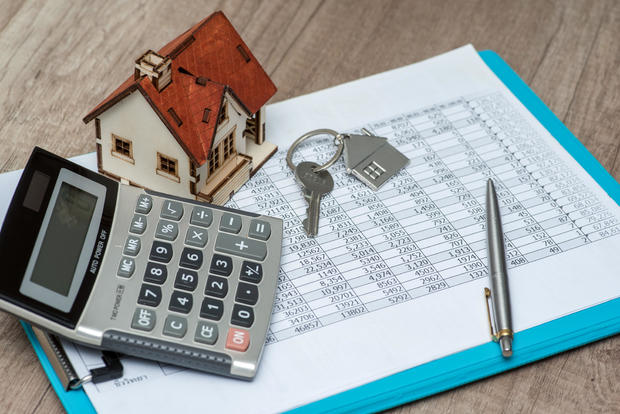Your down payment may be one of the most expensive upfront costs you face while buying a home, but it’s not the only one. You’ll also have closing costs — expenses associated with originating, recording and closing your mortgage loan.
Both these and your down payment are due before you can finalize your mortgage and get the keys to your new house, so preparing for them is critical.
Exactly what costs can you expect, and how can you calculate them? Here’s what you need to know.
What are mortgage closing costs?
Closing costs are comprised of many separate fees, including lender-side fees, title costs, escrow expenses and more.
Here’s an idea of some of the closing costs you may see on your mortgage:
- Lender fees: These are fees paid to the mortgage lender and others involved in the mortgage process. They include things like origination fees, points, underwriting fees, the cost of pulling the borrower’s credit report and appraisal fees.
- Title and settlement fees: These are expenses paid to the title company and others involved in closing your loan. Examples of these include title insurance policy fees, title search fees and recording fees, which cover the costs of recording the transaction with the county.
- Pre-paid items and escrow costs: These are items you pay ahead of time – like your homeowner’s insurance, mortgage insurance and property taxes. The funds are placed into an escrow account, which your mortgage company uses to pay these bills annually. You will also need to pre-pay a portion of your mortgage interest, which covers the period between closing your loan and making your first mortgage payment.
Typically, the buyer pays all or the majority of the closing costs. However, there are some scenarios when sellers may chip in.
How much are closing costs?
Closing costs (without pre-paid or escrow costs) average around $7,000 nationally for a single-family property, according to closing platform ClosingCorp. It’s important to note that these costs vary widely by lender and location. In Washington, D.C., for example, the average closing costs are nearly $30,000.
The best way to determine what you’ll owe in terms of closing costs is to look at the loan estimate provided by your mortgage lender. These detail all the fees and costs associated with your mortgage loan and can be a good way to compare quotes from different companies.
It is possible that your closing costs will go up between receiving your loan estimate and closing on your loan, but only in certain circumstances – with many increases capped at 10%, per the Consumer Financial Protection Bureau (CFPB. However, costs not controlled by the lender – like prepaid insurance or third-party fees, for instance – can increase more than this.
Either way, any increases will be noted on your closing disclosure form, which mortgage lenders must provide to you at least three business days before your closing appointment.
How to lower (or avoid) closing costs
You can’t really avoid closing costs when buying a home, but you may be able to lower them. There are several ways to go about this. You can:
- Shop around: Shop around for your mortgage lender and third-party service providers. (Once you choose a lender, look at the “Services You Can Shop for” section on page 2 of your loan estimate. These are the third-party vendors you can shop around for.)
- Get pre-approved with several mortgage lenders: Each lender will give you a loan estimate, which you can use to compare closing costs and lender-side fees.
- Talk to your real estate agent: Depending on your market, you may be able to negotiate for the seller to pay a portion of your closing costs.
If you’re considering asking the seller to contribute, talk to your mortgage lender first. There may be limits depending on your loan program.

